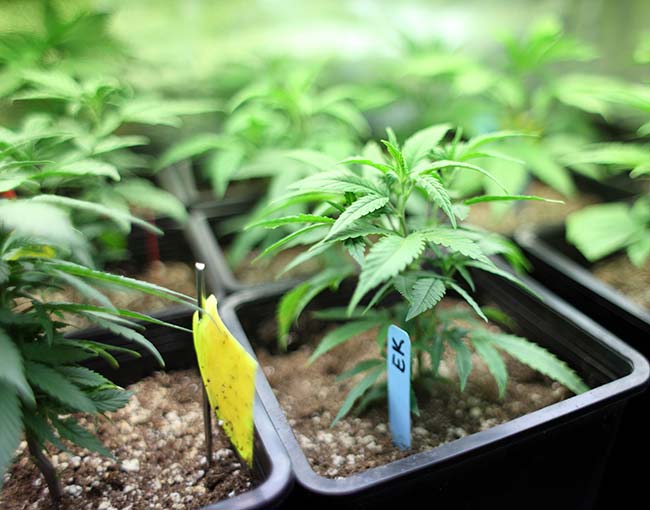In a recent study that has been accepted for publication in The Clinical Journal of Pain, researchers assessed the long-term effect of medical cannabis treatment on pain and other outcomes (including sleep problems) in people suffering from chronic pain that was resistant to other treatments (including opioid consumption). The design was longitudinal and prospective (in which 176 participants were followed forward in time for about six months) and open-label (meaning that both the researchers and participants knew what treatment was being administered). Cannabis efficacy was assessed via comparison of participant responses to surveys (a questionnaire, an index, and an inventory, depending upon the outcome of interest). The researchers found long-term improvement in pain scores and reductions in opioid consumption following cannabis treatment.
Cannabis treatment was added to the participants’ existing pain medication regimens. Participants were not required to discontinue other pain medications, but were encouraged to reduce gradually or discontinue their consumption, particularly of chronic opioids. The primary outcome of interest was pain reduction, which was achieved in about 66% of participants. There were moderate to severe adverse effects (sedation, difficulty concentrating, etc.) requiring discontinuation of cannabis treatment by nine participants. Two participants had severe apparent adverse reactions (elevated liver enzymes in one, and confusion requiring hospitalization in another, elderly, participant). This rate of side effects (11 out of 206 participants or 5.3% who completed baseline questionnaires) is considered to be low. The finding with respect to opioid use may be particularly important: 73 participants were consuming opioids for pain at the outset of the study, but 32 had discontinued opioid treatment completely by the six-month follow-up (a reduction of 44%). This finding raises the question of whether cannabis use may be a gateway to opioid abstention for chronic pain patients and others who are dependent on opioids.
As is true with all observational studies, this study carries with it meaningful inferential limitations, the most important of which is the absence of a control group. Potential bias due to the so-called placebo effect (an outcome driven or affected by a participant’s belief in the treatment being assessed) is thought to be particularly strong where the outcome of interest is pain. The authors describe this and other limitations of the study, including potential bias arising from their adherence to strict selection criteria by which patients with psychiatric illnesses, histories of drug abuse, and other risk characteristics were excluded from participating. Nonetheless, studies such as this one help form the foundation for weighing the risks and benefits of cannabis use, and therefore have important implications with respect to both the future of cannabis legalization and potential tort liability for its manufacture, distribution, and sale.
Carl Rowley is co-chair of Thompson Coburn’s Consumer Products Litigation Practice and co-chairs the firm’s Mass Tort Practice. He can be reached at (314) 552-6100 or crowley@thompsoncoburn.com.
















